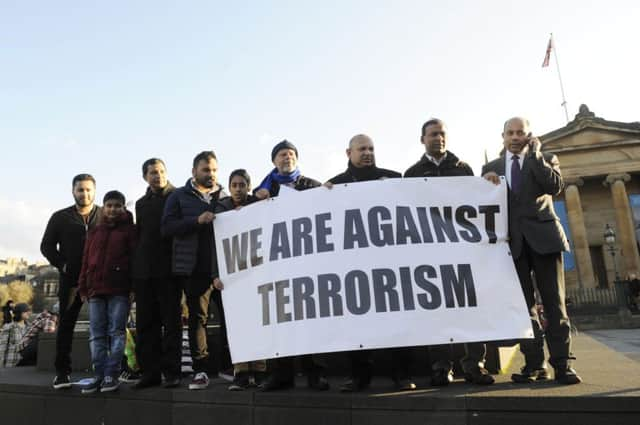Leaders: Time for new security services covenant


There are terror groups who intend to do our society harm. Their targets are not just political leaders and military top brass, but civilians who simply want to exercise ordinary freedoms that these terrorists regard as offensive to their twisted beliefs.
For them, the fact that we live in an open and secular democracy is all the provocation they need to target men, women and children in a mass and indiscriminate fashion.
Advertisement
Hide AdAdvertisement
Hide AdThat is before we consider the potential threat to our national security posed by potentially hostile states. Tensions in the Baltic and the Black Sea are a timely reminder of how international peace and security in Europe can be a fragile thing.
Methods of communicating through the internet and telecommunications become more varied and sophisticated by the month, and it makes sense that the government needs to allow GCHQ substantial leeway to keep track of potential threats.
It also makes sense that some of the techniques these agencies use to find information and keep tabs on those who would do us harm must, by their nature, remain secret. The justification for this is simple and obvious: if the terrorists knew how we were listening to them, they would communicate in some other manner.
But as a society we do not hand this power to the security agencies without expecting something in return. There needs to be a bond of trust between spies and society at large that allows us to be satisfied that the power exercised in secret is exercised in a way we would consent to.
What became all too clear yesterday in the latest report by the intelligence and security committee (ISC) was that this bond of trust is in need of a great deal of work.
The ISC says it is acceptable that bulk collection of communications data is a necessary requirement if the security agencies are to do their jobs properly. The committee believes that because only a small proportion of this data is actually examined, this mass collection does not constitute “blanket surveillance” or “indiscriminate surveillance”.
This seems reasonable, in the circumstances.
But we as a society need to confident there is proper democratic oversight of the actual techniques used by GCHQ.
The ISC recommendation that a law is required to establish a new relationship between elected politicians and the security agencies is a sensible one.
Advertisement
Hide AdAdvertisement
Hide AdA new covenant of trust with the security services needs to be a priority for whatever government is elected in May.
We expect much of these agencies, and therefore place a great deal of trust in them.
But we need to know that sufficient checks and balances are in place to ensure that trust is not misplaced.
Farage’s dog-whistle politics
NIGEL Farage must have a low opinion of the average British voter. If he honestly expects people to take his latest comments at face value, then he may be set for a disappointment come polling day.
The Ukip leader said in a Channel 4 documentary that he was in favour of scrapping much of Britain’s legislation outlawing racial discrimination at work.
His rationale was that this would allow a British employer to give a job to a British person rather than, say, a Polish immigrant.
To justify his position, Mr Farage insisted that Britain was now such a colour-blind society there was no need of legislation to protect people on the basis of their ethnicity or skin colour.
Mr Farage insisted he was talking about nationality, not race, but the transcript of the interview seems to contradict him.
Frankly, his position defies belief.
Advertisement
Hide AdAdvertisement
Hide AdPerhaps there are some optimistic, glass-half-full people in this country who really do think we all live in such a racially tolerant and liberal society that discrimination on the basis of skin colour is a thing of the past. If such people exist we doubt very much if the leader of Ukip is genuinely one of them.
On the contrary, the suspicion is that this was a none-too-subtle dog-whistle statement to appeal to exactly the kind of people from whom this legislation is designed to provide protection.
It is a massive misjudgment for Mr Farage, whose attempts to move Ukip towards electoral respectability all too often result in a lid being lifted on some deeply unsavoury attitudes that have no place in 21st century multicultural Britain.
FOLLOW US
SCOTSMAN TABLET AND MOBILE APPS